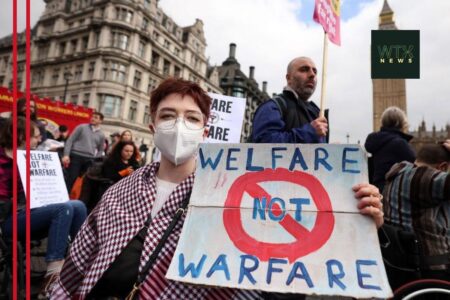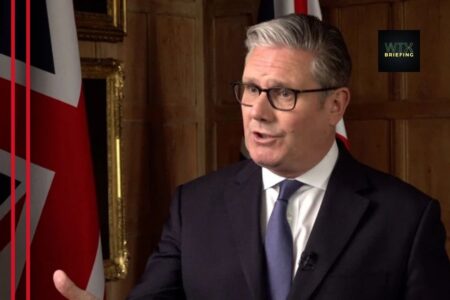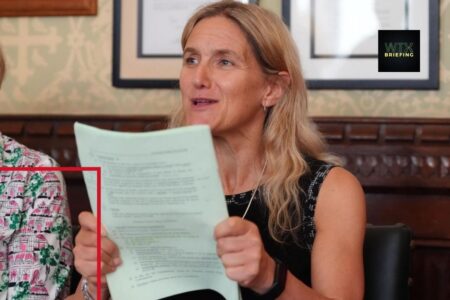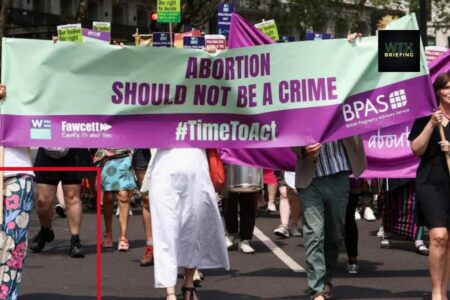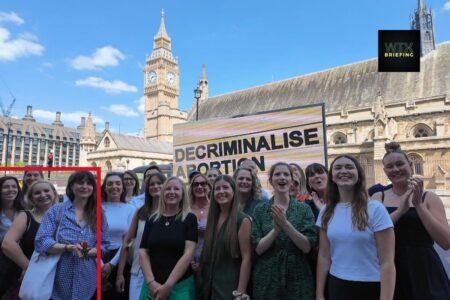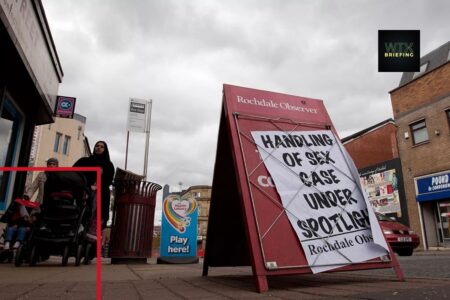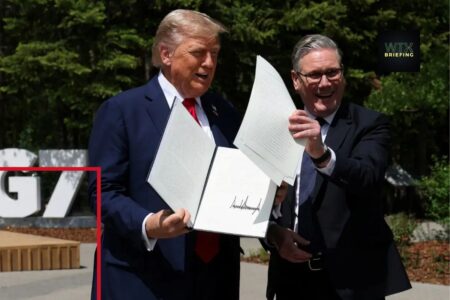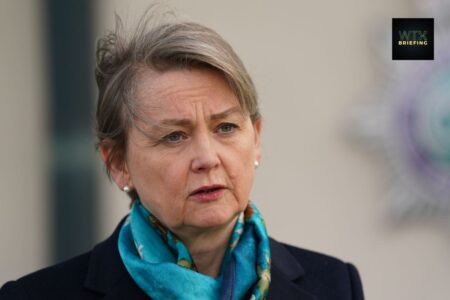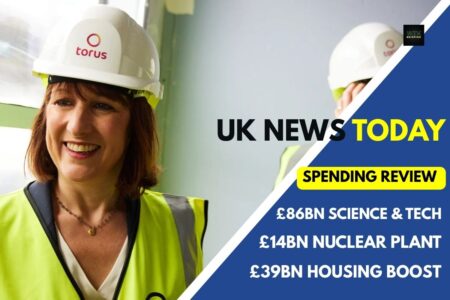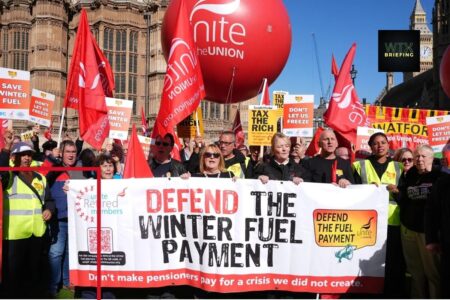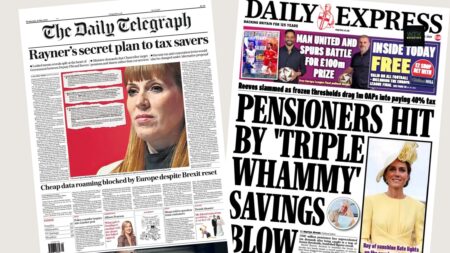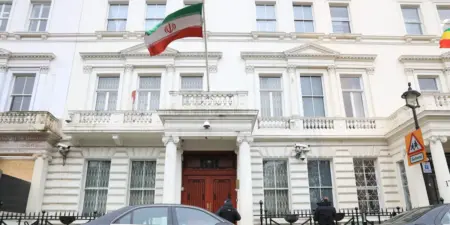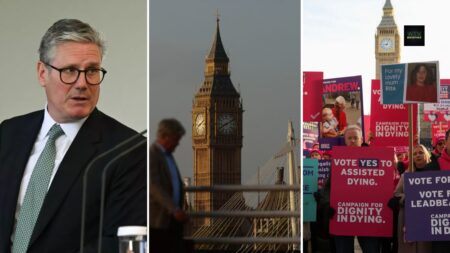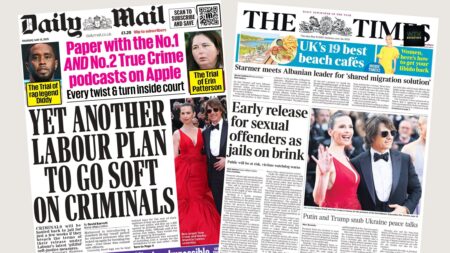Palestine Action is challenging the UK government’s decision to proscribe it as a terrorist organisation under the Terrorism Act 2000.
Browsing: UK government
Labour MPs have launched a significant rebellion against the government’s welfare reform plans, with over 100 MPs backing an amendment that could effectively kill off the flagship welfare bill.
Over 100 Labour MPs have launched a significant rebellion against the government’s welfare reform bill, supporting a formal amendment to block its progress until further consultation and comprehensive impact assessments, especially regarding disabled people, are carried out.
Matt Clifford, Sir Keir Starmer’s AI opportunities adviser, is stepping down for family reasons after six months in the role, having advised on the AI opportunities action plan.
Kim Leadbeater is optimistic about its passage to the House of Lords, citing strong support from previous votes and polls indicating 72% of Britons back the legislation.
In a landmark free vote, the House of Commons passed an amendment to the Crime & Policing Bill by 379 to 137, removing criminal penalties for women who end their own pregnancies outside the legal framework.
MPs have voted 379 to 137 to decriminalise abortion in England and Wales, marking significant changes in reproductive rights after nearly 60 years.
Tuesday’s UK headlines are dominated by the ongoing backlash after a report into grooming gangs in the UK was released. The media is reading through the 197-page audit, and reacting to the details. The UK government has announced a full national inquiry to begin soon.
Global news takes centre-stage in the UK this morning, as Prime Minister Keir Starmer signed the UK-US trade deal with Donald Trump at the G7 summit in Canada. The agreement removes tariffs on UK aerospace exports and cuts tariffs on British cars from 25% to 10%. The US president said the UK is ‘protected’ because he likes them.
There’s good news for British Steel which has secured a five-year contract worth £500m to supply train tracks for Network Rail.
MPs are debating on a law change aimed at decriminalising abortion in the House of Commons today. MPs are usually given a free vote on abortion, meaning they do not have to follow any party line on the subject.
Donald Trump has left the G7 summit early as the cross-border attacks between Israel and Iran continue to escalate. Israel is targeting Iran’s energy sector, which Iran says is a war crime. Trump leaving the Middle East so abruptly has global commentators suggesting that US troops could be preparing to enter the war.
Baroness Louise Casey’s 197-page audit has exposed “blindness, ignorance and prejudice” in institutional responses to UK grooming gangs, revealing a shocking pattern of failing to protect vulnerable children—some as young as 10—over the past 15–20 years.
At the G7 summit in Canada, Prime Minister Keir Starmer and US President Donald Trump formally approved a UK‑US trade deal targeting aerospace and automotive sectors.
The Home Office today announced a major, nationwide police operation targeting grooming gangs, led by the National Crime Agency (NCA). Over 800 historical cases have been reopened, with specialist teams—including Operation Hydrant and the Child Sexual Exploitation Taskforce—mobilised to identify and prosecute offenders who had been previously overlooked.
Grab your coffee —it’s time to dive into what’s lighting up the UK news (and beyond) this Wednesday, 11 June 2025.
This morning in London the grey skies are putting in an appearance —and with rain on the way, if you head out, don’t forget your brolly!
The UK news is dominated by the Spending Review which Chancellor Rachel Reeves will set out later today. Several big announcements have already been leaked to the press – including billions being spent on a science and tech package.
Elsewhere, the ongoing chaos in LA has a prominent place on news websites and the front pages. The LA major has issued a curfew in a bid to quell the growing violence – which has grown rapidly since Trump sent in the National Guard to deal with what was essentially small protests against immigration raids.
The sports papers react to England’s 3-1 loss to Senegal – with pundits already panicking ahead of next year’s World Cup.
Chancellor Rachel Reeves has reversed the winter fuel payment cut, confirming full payments of £200–£300 this winter for pensioners earning up to £35,000 a year in England and Wales.
The UK government is set to announce a £14.2bn funding commitment for the Sizewell C nuclear power station, aimed at directly creating 10,000 jobs, including 1,500 apprenticeships.
The UK will build up to 12 new conventionally armed, nuclear-powered attack submarines, as part of a sweeping Strategic Defence Review to be announced on Monday by Prime Minister Sir Keir Starmer. The submarines will begin replacing the current fleet from the late 2030s and are designed to safeguard Britain and its NATO allies for decades to come.
Good morning – let’s grab a coffee and catch up on what’s making headlines in the UK and beyond today.
There’s some relief on the way for households as energy bills are set to fall for the first time in a year. Ofgem has confirmed a 7% cut to the energy price cap from July, which means the average household in England, Scotland and Wales will see their annual bill drop by around £129.
Prime Minister Keir Starmer has signed a significant agreement to transfer sovereignty of the Chagos Islands to Mauritius. As part of the deal, the UK will lease back the vital military base on Diego Garcia for £101 million a year, securing its use for an initial 99-year period.
In England, public sector workers are seeing a boost in their pay packets. Teachers and doctors will receive a 4% pay rise following recommendations from official pay review bodies. While education unions have largely welcomed the decision, they’ve warned that schools could face budget shortfalls without additional funding. Meanwhile, health unions have criticised a smaller 3.6% increase for NHS staff such as nurses and midwives.
On the global stage, tensions are rising after Israeli Prime Minister Benjamin Netanyahu launched a scathing attack on Keir Starmer and the leaders of France and Canada. Netanyahu accused them of siding with Hamas, following recent international criticism of Israel’s military actions. The comments came after two people were shot dead at the Israeli embassy in Washington, which has further strained diplomatic relations.
In the United States, the Trump administration has taken dramatic action against Harvard University, revoking its ability to enrol international students. Homeland Security Secretary Kristi Noem said Harvard had failed to comply with immigration laws, while the university has called the move “unlawful” and a direct threat to academic freedom.
And finally, a suspect has been charged with the murder of two Israeli embassy staff members outside a Jewish museum in Washington DC. US prosecutors are treating the shooting as a hate crime and an act of terror, and have confirmed it’s a death penalty-eligible case. More charges are expected as the investigation continues.
Wednesday’s headlines are dominated by the UK government’s U-turn on its stance on the genocide in Gaza. For the right-leaning UK press, the story is largely kept off the front pages and replaced with domestic stories – mostly political.
Sir Keir Starmer described the new UK-EU Cooperation Agreement as a “landmark deal,” with potential economic contributions estimated at £90 billion by 2040, though the specifics remain to be confirmed.
The UK government has summoned Iran’s ambassador following charges against three Iranian nationals for alleged spying activities aimed at journalists from Iran International in London.
The UK and EU have finalised a post-Brexit trade deal after extensive negotiations, addressing contentious issues including fishing rights, which will now allow EU access to UK waters for 12 years.
Good morning! Grab a coffee and let’s dive into the headlines dominating the UK news today. It’s busy on the politics front with Prime Minister Keir Starmer hosting a pivotal summit with EU leaders in London, aiming to reset post-Brexit relations. Meanwhile, charities are increasing pressure on the government to abolish the two-child benefit cap, highlighting its impact on child poverty.
In international news, former US President Joe Biden has been diagnosed with prostate cancer, sparking global concern and an outpouring of well wishes. An attempted terrorist attack on a Palm Springs fertility clinic is also featured heavily in the news as the suspect has been named as 25-year-old Guy Edward Bartkus.
And in Gaza, Israeli airstrikes have intensified, resulting in significant casualties amid ongoing ceasefire talks. It comes as Israel agreed to allow a limited amount of food into Gaza to prevent a “starvation crisis” amidst a blockade lasting nearly three months.
On a lighter note, Crystal Palace fans are still celebrating their historic FA Cup victory over Manchester City and Chelsea WFC beat Manchester United to win the Women’s FA Cup – completing the domestic treble.
Sir Keir Starmer expressed concerns that Britain could become an “island of strangers” if immigration issues are not addressed, drawing criticism for similarities to past inflammatory rhetoric.
Friday’s headlines are dominated by the debate around legalising assisted dying in England and Wales (Scotland has its own separate bill). Politicians, health experts and scholars are offering their opinions ahead of Friday’s debate.
The bill passed the first stage of the Commons last November – but since then there have been dozens of amendments added by both sides. A vote to pass or reject the bill is not likely to take place on Friday, but rather in June.
UK businesses are calling on the government to reset relations with the EU ahead of a summit hosted in London next week. More than 400 UK firms have urged the government to take “practical steps” to reduce red tape, ease staff mobility, and coordinate on climate, defence and energy.
On the international front, there’s widespread coverage of the humanitarian crisis facing Gaza as Israel continues to block aid (including food) and continues to heavily bomb the strip. Donald Trump is concluding his tour of the Middle East where he has signed huge investment deals.
Several of Thursday’s newspaper front pages lead on the new government plans to address overcrowding in prisons in England and Wales. Yesterday, Justice Secretary Shabana Mahmood announced plans including early release and building new prisons.
The UK economy grew by 0.7% in the first quarter of the year, outpacing expectations and marking a stronger start to 2025 than analysts had predicted. The Office for National Statistics (ONS) reported that growth was primarily driven by a resilient services sector, alongside significant gains in industrial production.


